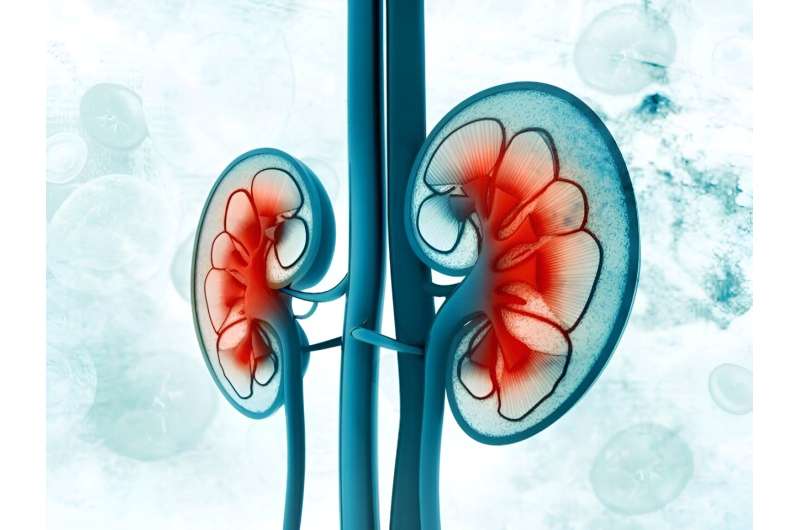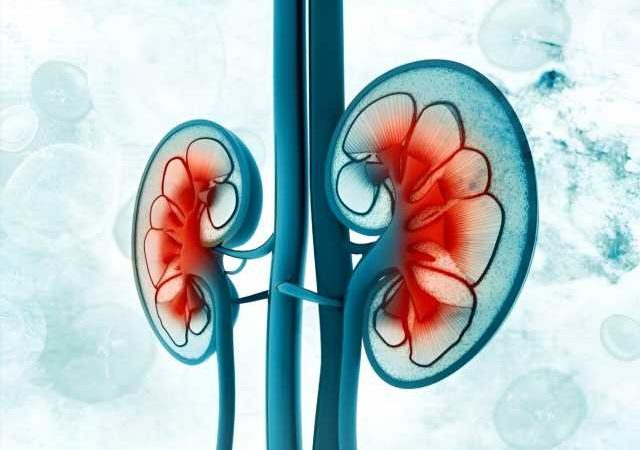
For patients with immunoglobulin A (IgA) nephropathy, nine months of treatment with targeted-release formulation of budesonide (Nefecon) yields a greater reduction in estimated glomerular filtration rate (eGFR) than placebo, which lasts for two years, according to a study published online Aug. 14 in The Lancet.
Richard Lafayette, M.D., from Stanford University in California, and colleagues conducted a phase 3, multicenter, randomized trial involving adults with primary IgA nephropathy, eGFR of 35 to 90 mL/min/1.73 m2, and persistent proteinuria despite optimized renin-angiotensin system blockade. Patients were randomly assigned to receive 16 mg/day budesonide or matching placebo (182 per treatment group) for nine months followed by a 15-month observational follow-up period.
The researchers found that over two years, the time-weighted average of eGFR showed a significant treatment benefit with budesonide versus placebo (difference, 5.05 mL/min/1.73 m2), with time-weighted average changes of −2.47 and −7.52 mL/minute/1.73 m2 reported with budesonide and placebo, respectively. During treatment with budesonide, the most commonly reported treatment-emergent adverse events were peripheral edema, hypertension, muscle spasms, acne, and headache. There were no reports of treatment-related deaths.
“The final NefIgArd study analysis has verified the clinical benefit of Nefecon treatment as the first approved, disease-specific treatment that is able to significantly reduce the rate of kidney function decline in patients with primary IgA nephropathy,” the authors write.
More information:
Richard Lafayette et al, Efficacy and safety of a targeted-release formulation of budesonide in patients with primary IgA nephropathy (NefIgArd): 2-year results from a randomised phase 3 trial, The Lancet (2023). DOI: 10.1016/S0140-6736(23)01554-4
Börje Haraldsson, Phase 3 trial results bring hope for patients with IgA nephropathy, The Lancet (2023). DOI: 10.1016/S0140-6736(23)01633-1
Journal information:
The Lancet
Source: Read Full Article
